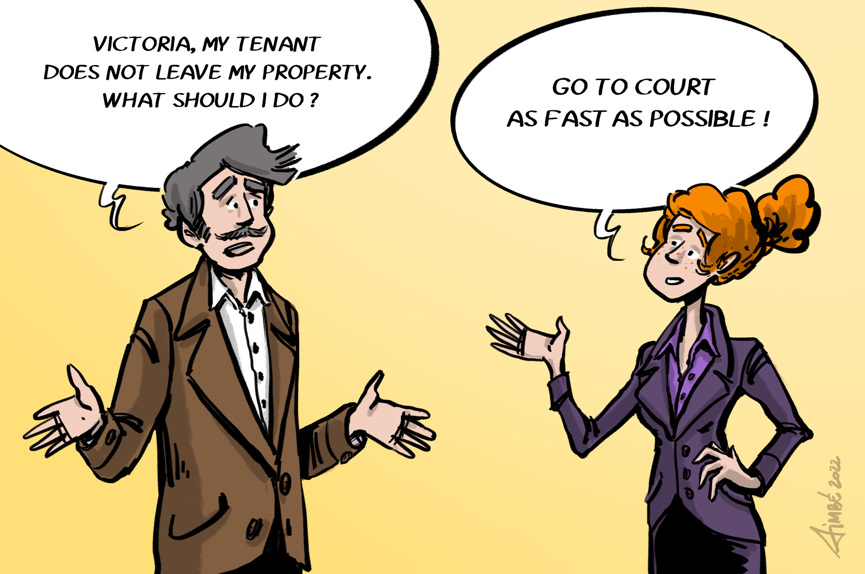- Real Estate, Renting and Co-ownership
- tenant , landlord , leave the property , if your tenant does not leave , tenant does not leave , tenant's eviction , occupancy allowance , does not leave voluntarily , tenant wrongfully stays , leave the premises , end of the notice period
Sometimes it happens that you, as a landlord, give your tenant notice and that you suspect that he will not leave the premises. The tenant does not respond to the notice letter nor does he or she say when he or she intends to leave the property at the end of the notice period. Below you learn what you can do in this case.

1. Proceedings before the Justice of the Peace if your tenant does not leave
If you as landlord have given the termination correctly and the tenant does not leave voluntarily, you will have to start a proceedings before the Justice of the Peace.
This is possible by means of a unilateral application in which you immediately request the tenant's eviction and an occupancy allowance for each day that the tenant wrongfully stays in your property.
If the tenant still does not leave voluntarily after the judgement, you can have him evicted by a bailiff and, if necessary, with the help of the police.
Unfortunately, this takes a long time. Between the time you start the proceedings at the end of the notice period and the time when you get the property vacated, there will soon be several months.
How can you avoid this?
2. You can initiate proceedings early
You can also go to the Justice of the Peace earlier. In principle, this is possible as soon as you have given the valid notice. You then ask for confirmation of this notice and at the same time for an eviction notice if the tenant does not leave at the end of the notice period.
In this way, you can save valuable time because you do not have to wait for the notice period to expire.
However, this is only an action to take when you have not heard from your tenant at the time you give notice and you suspect that he or she is not ready to leave the premises or when your tenant clearly indicates that he or she will not leave at the end of the notice period.
Most tenants leave voluntarily at the end of the notice period given.
3. Costs
As the landlord, you will have to advance the costs, both for the initiation of the proceedings by unilateral application and for any legal fees.
It is then up to the judge to decide who will bear the final costs of the proceedings. It is important that you can prove that it was really necessary to initiate proceedings since your tenant would not leave voluntarily. Only then there is a chance that the judge will order your tenant to pay the costs of the proceedings and a possible court fee (fixed costs for the lawyer).
4. Conclusion
If your tenant has not left the property by the end of the notice period, you should start proceedings before the Justice of the Peace.
When you suspect that your tenant will not leave the premises or, even more, when your tenant has informed you that he or she will not leave the premises, you can immediately go to the Justice of the Peace to have the notice period confirmed and to obtain an eviction order. This can save you valuable time and ensure that your property is available to rent again.
Should you like more information about this matter or should you like to be assisted, please do not hesitate to contact our specialists via info@seeds.law or +32 (0)2 747 40 07.




